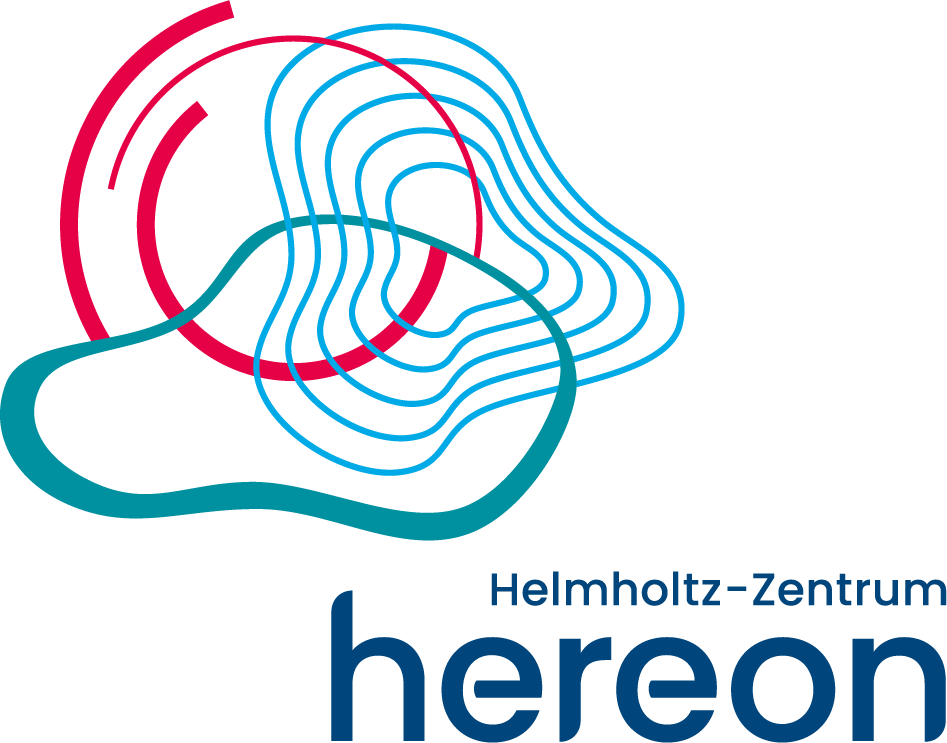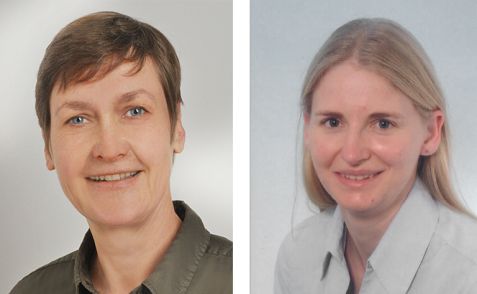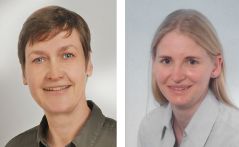MLZ is a cooperation between:
 > Technische Universität München
> Technische Universität München > Helmholtz-Zentrum Hereon
> Helmholtz-Zentrum Hereon
 > Forschungszentrum Jülich
> Forschungszentrum Jülich
MLZ is a member of:
 > LENS
> LENS > ERF-AISBL
> ERF-AISBL
MLZ on social media:

MLZ (eng)
Lichtenbergstr.1
85748 Garching
26.6.2017
Two MLZ scientists re-elected in committee research with neutrons

Dr. Astrid Schneidewind and Dr. Wiebke Lohstroh have been elected to the KFN committee. © FRM II / TUM
They have received by far the most votes from all candidates and are represented again in the “Komitee Forschung mit Neutronen” (KFN): Dr. Astrid Schneidewind from the Jülich Centre for Neutron Science, and Dr. Wiebke Lohstroh from the Technical University of Munich.
The two instrument scientists at the Heinz Maier-Leibnitz Zentrum have already been involved in the neutron researcher’s committee for an election period. In this time, Wiebke Lohstroh has represented the interests of the German user community in the development of new research instruments for the European neutron spallation source ESS in Lund. Astrid Schneidewind has represented the KFN in the European Neutron Scattering Association ENSA and has dealt with the funding of German universities through Verbundforschung, the financing mode of basic science endeavours by the German federal ministry for education and research (BMBF). In future, Schneidewind wants to work on the national and international level to ensure that neutron centres are more “adapted to the changed user community”. Lohstroh will still be committed to the new instruments of the Germans at the ESS in Sweden.
“We are very thankful for the confidence of the neutron users,” they say. They were able to convince most of the 523 voters with 164 (Schneidewind) and 143 (Lohstroh) votes. In all, 1555 researchers in Germany were eligible to vote and had seven votes each.
The results are presented at the SNI webpage.
Related News
MLZ is a cooperation between:
 > Technische Universität München
> Technische Universität München > Helmholtz-Zentrum Hereon
> Helmholtz-Zentrum Hereon
 > Forschungszentrum Jülich
> Forschungszentrum Jülich
MLZ is a member of:
 > LENS
> LENS > ERF-AISBL
> ERF-AISBL
MLZ on social media:



